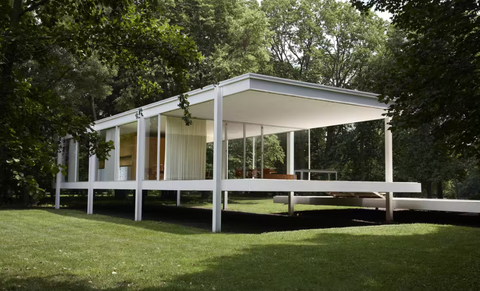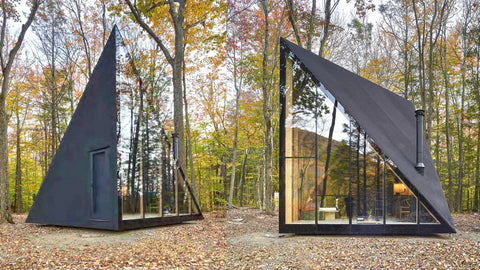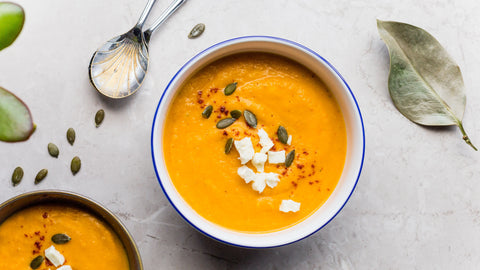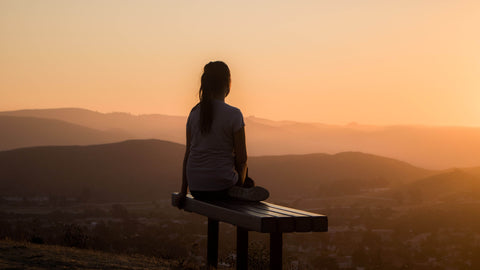
“Less is more”
Minimalism is used to describe a lifestyle in which individuals strive to only purchase items that have a real purpose and utility. Simply put, it is a behaviour which provides a way for individuals to declutter their lives and find balance by removing distractions and focusing on useful and simple things. This movement enables individuals to find some sort of freedom, lightness, and ease in life since it pushes them to use their time more thoughtfully for things that they truly need.
The phrase “less is more” was first introduced by Robert Browning in 1855 in a poem called “Andrea del Sarto” and was made famous by designer and architect, Ludwig Mies van der Rohe. Interestingly enough, Ludwig Mies’ minimalist and modern aesthetic even reached our cultural hub of Montreal when he designed Westmount Square in 1964. Since the 1960s, this dictum has gradually gained momentum in all creative fields.

Farnsworth House, Ludwig Mies van der Rohe (1951), Plano, Illinois
Our take on Minimalism and Sustainability
Minimalist designs can address the lack of sustainability in many different industries, notably in the fashion industry. Since fast-fashion clothing items are designed to last a mere one to two years, then end up in landfills, sustainable and minimalist designers give people the opportunity to invest in pieces that are durable and timeless. The benefits are obvious: reduced carbon footprint and less waste.
BEDI was founded on the goal of balancing sustainability and design. As minimalists our aim is to encourage people to buy less, use items longer and make sure that these items have a second life so they never end up in a landfill. Every season we strive to provide a capsule collection of elevated essentials that are durable and timeless, made predominantly from upcycled materials.
Insights into a Minimalist lifestyle
In recent years, the minimalist lifestyle became so popular that some have decided to truly commit to it and to implement minimalism in different aspects of their lives.
The Minimalist Home
For example, Jay Shafer revolutionized the way people lived by starting the “Tiny-House Movement”, which aims at reducing the carbon footprint and simplifying people’s lives by living in a minimalist home no bigger that 100 square feet.

The Minimalist Diet
Moreover, minimalist diets, which consist of eating simple products that aren’t processed and making meals with less than 10 ingredients, have also become popular. People who follow such a diet typically gravitate towards core foods that are minimally packaged so as to reduce plastic waste.

The Minimalist Mindset
A certain mindset is required to have a minimalist lifestyle. Simply put, it pushes people to practice gratitude on a day-to-day basis rather than sporadically since everything has a place and a purpose. Practicing meditation regularly helps rewire the brain into being more grateful.

For us, design is compatible with sustainability, and minimalism forces us to focus in on the details that truly matter. All industries should concentrate on creating products with materials that are sustainable and durable, highlighting craftsmanship and local production. We are proud be part of this growing community by encouraging our customers to have environmentally and socially responsible buying behaviours.

















